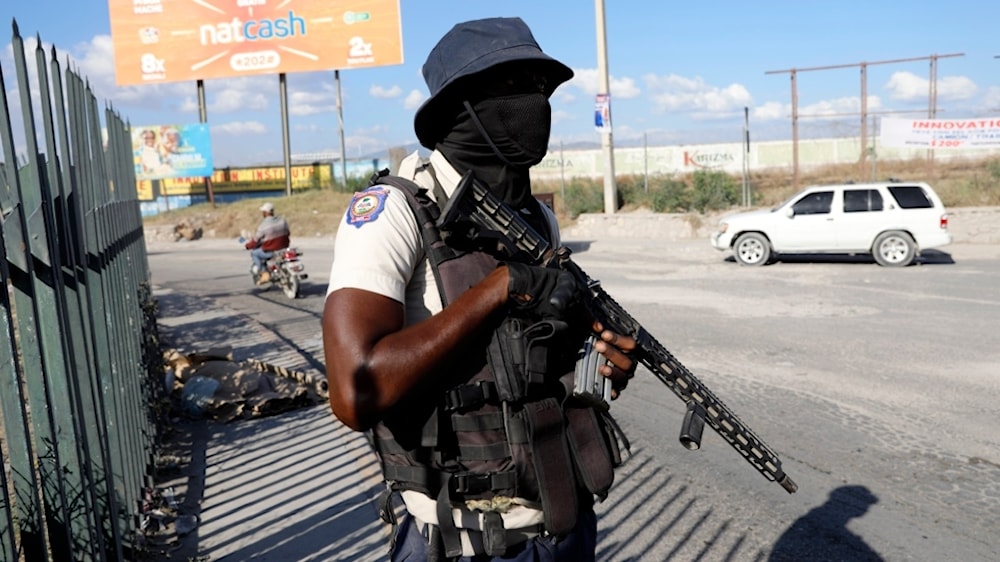Fearing turmoil, new Haiti government sworn in during secret ceremony
The nine-person "transitional council" was formally constituted on Thursday at an event held at the national palace in Port-au-Prince.
-

A National Police officer patrols an intersection in Port-au-Prince, Haiti, Friday, Jan. 26, 2024 (AP)
Ariel Henry, Haiti's Prime Minister, has legally resigned, and a new interim administration has been inaugurated in a private ceremony at the presidential palace.
The nine-person "transitional council" was formally constituted on Thursday at an event held at the national palace in Port-au-Prince.
Amid Haitian Prime Minister Ariel Henry's visit to Kenya on February 29 to negotiate the deployment of foreign forces to combat organized crime in Haiti, gang violence broke out in downtown Port-au-Prince and two weeks later, Henry resigned.
Because of the potential for violence, Thursday's early morning event was kept private and not made public. On the eve of the event, sources indicated that it would take place at another government property.
In recent days, there have been shootouts between police and armed criminals in the downtown area surrounding the Palace. This Monday, Jimmy Chérizier, a notorious gang spokesperson, told Haiti's new caretaker authorities to "brace yourselves".
The US Department of State earlier released a statement confirming the formation of a Transitional Presidential Council in Haiti.
The US has been trying to gain a foot in the internal affairs of Haiti, as last month and going against previous vows of no boots on the ground in Haiti, the US Southern Command acknowledged that troops may be stationed in the Caribbean nation.
Additionally, the United States revealed intentions to deploy several naval vessels to Haiti, claiming that this measure is in response to a potential event of mass migration caused by the worsening security situation in the country.
US 'here to help'
Political activists embraced the council's formation with optimism. Before holding elections, it will first appoint a new prime minister. The country has not had elections since 2016 as it still recovers from a deadly earthquake in 2010 that killed tens of thousands.
At a second event commemorating the council's formation, Dennis Hankins, the freshly appointed US ambassador to Haiti, expressed his optimism that "in crisis, the Haitians are able to do tremendous things and we’re here to help them. We won’t be the solution but hopefully, we’ll be part of helping those finding the solution.”
The ambassador admitted that many of the weapons that flooded the country came from the US, further claiming that the US government is attempting to curb the export of such weapons.
Militant groups are reported to control at least 80% of the capital, with outgunned authorities struggling to keep the politically linked gangs in check.
Over 50,000 people have been displaced, and the violence has killed or injured at least 2,500 people since the beginning of the year and left 1.6 million people on the verge of starvation.

 3 Min Read
3 Min Read








